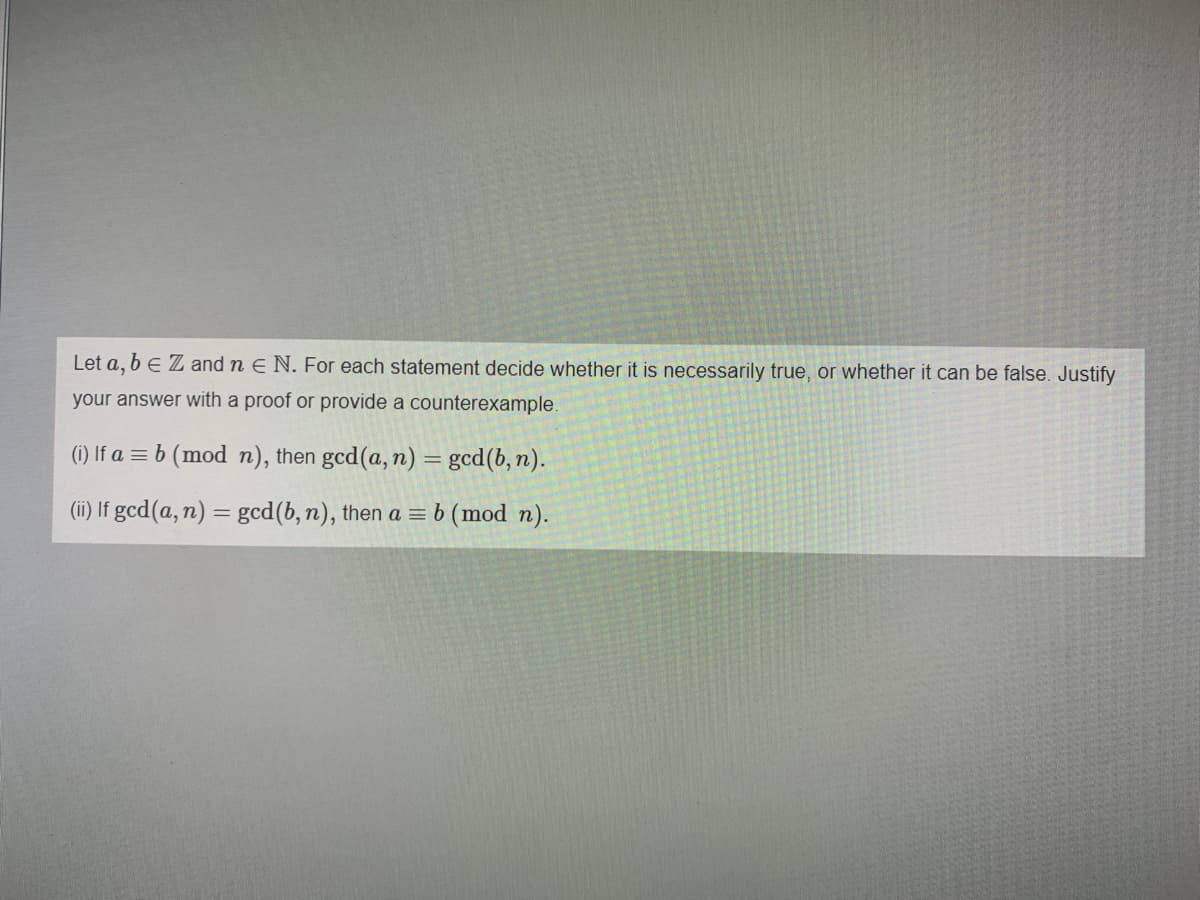Let a, be Z and n E N. For each statement decide whether it is necessarily true, or whether it can be false. Justify your answer with a proof or provide a counterexample. (1) If a = b (mod n), then gcd(a, n) = gcd(b, n). (ii) If gcd(a, n) = gcd(b, n), then a = b (mod n).
Let a, be Z and n E N. For each statement decide whether it is necessarily true, or whether it can be false. Justify your answer with a proof or provide a counterexample. (1) If a = b (mod n), then gcd(a, n) = gcd(b, n). (ii) If gcd(a, n) = gcd(b, n), then a = b (mod n).
Elements Of Modern Algebra
8th Edition
ISBN:9781285463230
Author:Gilbert, Linda, Jimmie
Publisher:Gilbert, Linda, Jimmie
Chapter2: The Integers
Section2.5: Congruence Of Integers
Problem 4TFE: Label each of the following statements as either true or false. a is congruent to b modulo n if and...
Related questions
Question
100%

Transcribed Image Text:Let a, b e Z and n E N. For each statement decide whether it is necessarily true, or whether it can be false. Justify
your answer with a proof or provide a counterexample.
(1) If a = b (mod n), then gcd(a, n) = gcd(b, n).
(ii) If gcd(a, n) = gcd(b, n), then a = b (mod n).
Expert Solution
This question has been solved!
Explore an expertly crafted, step-by-step solution for a thorough understanding of key concepts.
Step by step
Solved in 2 steps with 2 images

Recommended textbooks for you

Elements Of Modern Algebra
Algebra
ISBN:
9781285463230
Author:
Gilbert, Linda, Jimmie
Publisher:
Cengage Learning,

Elements Of Modern Algebra
Algebra
ISBN:
9781285463230
Author:
Gilbert, Linda, Jimmie
Publisher:
Cengage Learning,